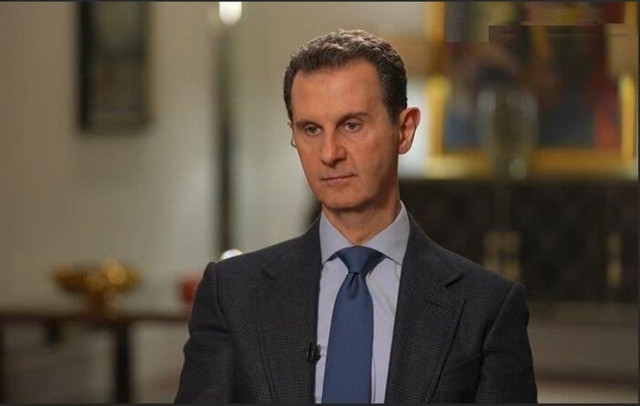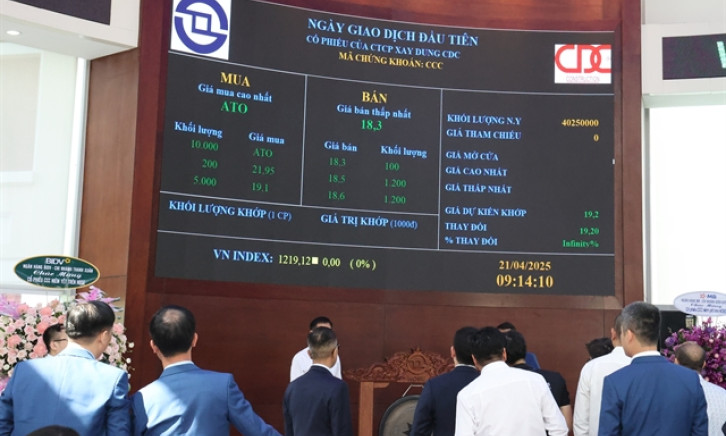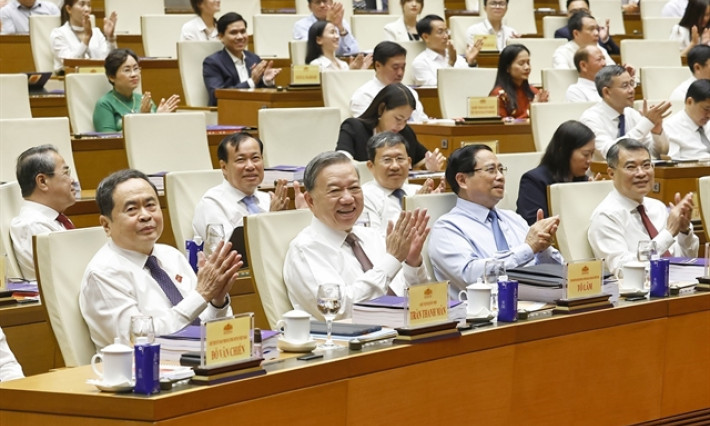VNA announces top 10 outstanding international events in 2024
The Vietnam News Agency (VNA) has selected 10 stand-out international events this year.
The Vietnam News Agency (VNA) has selected 10 stand-out international events in 2024 as follow:
1. Conflict expands in the Middle East

Fighting between Israel and Hamas in the Gaza Strip has expanded, with Hezbollah forces from Lebanon and Houthi fighters from Yemen becoming involved. The assassination of a Hamas leader in Tehran at the time when Iran’s new president took office led to direct attacks into each other's territories between Iran and Israel. As of December 25, the conflict has claimed the lives of approximately 50,000 people and affected millions.
On November 26, Israel and Hezbollah reached a temporary ceasefire agreement, but negotiations between Israel and Hamas remain in deadlock, leaving prospects for a solution to the Middle East conflict remote as ever.
2. Donald Trump wins US presidential election

On November 5, former US President Donald Trump won a victory over Democratic candidate Kamala Harris, and his Republican Party also gained control of both houses of the US Congress. The "America First" policy initiated by the 47th President of the US signals major shifts in both domestic and foreign policies, which are expected to have widespread implications for countries and regions around the world in the years to come.
3. Syrian President Bashar al-Assad's regime collapses

After 13 years of bloody civil war, on December 8, opposition forces in Syria took control of the capital, Damascus, forcing President Bashar al-Assad and his family to flee the country. The fall of al-Assad's regime is likely to have far-reaching consequences for the Middle East, potentially plunging the region into greater chaos and division. The international community is working to ensure a smooth political transition and restore stability to the country.
4. Russia-Ukraine conflict escalates with dangerous developments

In August 2024, Ukrainian forces launched a raid and seized several areas in Russia’s Kursk region. This marked the first foreign military assault on Russian territory since World War II. In mid-November, Kiev used missiles supplied by the US, UK, and France to strike deep into Russian territory for the first time. In response, Moscow fired hypersonic missiles at the Ukrainian city of Dnipro and announced a revised nuclear doctrine. The assassination of Russian General Igor Kirillov in Moscow on December 17 further heightened tensions between the two sides. Although both Russian and Ukrainian leaders have expressed willingness to negotiate, significant differences remain in their positions.
5. Global economy recovers despite headwinds

The International Monetary Fund (IMF) forecasts global economic growth of 3.2 per cent in 2024 despite risks from geopolitical conflicts, trade disputes, and uncertainties surrounding elections. Major economies are adjusting macro-economic policies, lowering interest rates to stimulate growth. The US Federal Reserve (Fed) has cut interest rates for the first time in four years, while several other central banks have taken similar actions.
6. Hottest year in human history

The European climate monitoring agency Copernicus has officially declared 2024 as the hottest year in human history. For the first time ever, the global average temperature surpassed 1.5°C above pre-industrial levels during 1850-1900 when the widespread use of fossil fuels began.
The rising temperatures have led to increased extreme weather events worldwide. Super typhoon Yagi claimed over 600 lives across Southeast Asia, while super typhoon Helene caused more than US$110 billion in damage in the US, and catastrophic flooding in Spain resulted in the deaths of 200 residents.
However, global efforts to reduce fossil fuel consumption remain insufficient.
7. Global gold prices hit record high

On October 31, global gold prices soared to an unprecedented US$2,790.15 per ounce, marking a 35 per cent increase since the beginning of the year. This surge triggered significant volatility in the domestic gold market.
Key factors driving the record-breaking prices include escalating inflation, geopolitical instability, and a shift in monetary policy by the US Federal Reserve. Central banks worldwide have been actively purchasing gold, reinforcing its role as a vital national reserve asset.
The soaring gold prices have diminished the appeal of riskier assets, prompting many investors to redirect their funds into alternative investments.
8. Rise of the right in Europe

A majority of parliamentary elections in Europe have witnessed a strong surge of right-wing, far-right, and nationalist movements. This not only poses challenges to the future and stability of the European Union (EU) but also weakens international cooperation efforts aimed at addressing urgent global issues. The failure of French Prime Minister Michel Barnier's Government to survive a no-confidence vote and German Chancellor Olaf Scholz's Government to pass a confidence vote reflects the political instability in Europe.
9. UN adopts first-ever global resolution on AI

On March 21, the United Nations General Assembly passed a landmark resolution promoting "safe, secure and trustworthy" Artificial Intelligence (AI) systems to advance sustainable development for all. This move came as the global community grapples with the opportunities and challenges of AI application and governance.
The Association of Southeast Asian Nations (ASEAN) released its Guide on AI Governance and Ethics to encourage responsible AI use. Meanwhile, the EU officially introduced its AI Act, aiming to protect citizens' rights while fostering innovation.
10. Chang'e-6 brings samples from moon's far side

On June 25, China's Chang'e-6 spacecraft safely landed at the Siziwang Banner site in Inner Mongolia’s desert region (northern China), carrying samples collected from the Moon's far side. This marked an unprecedented achievement in lunar exploration.
Scientists anticipate that the materials retrieved, including 2.5-million-year-old volcanic rocks and other unique samples, will help unravel mysteries about the geographical differences between the Moon's near and far sides.






